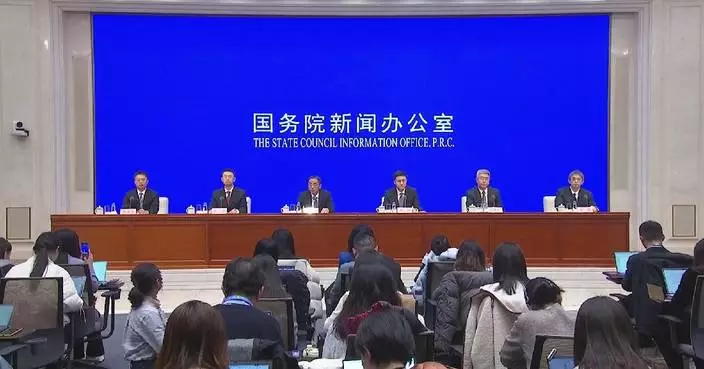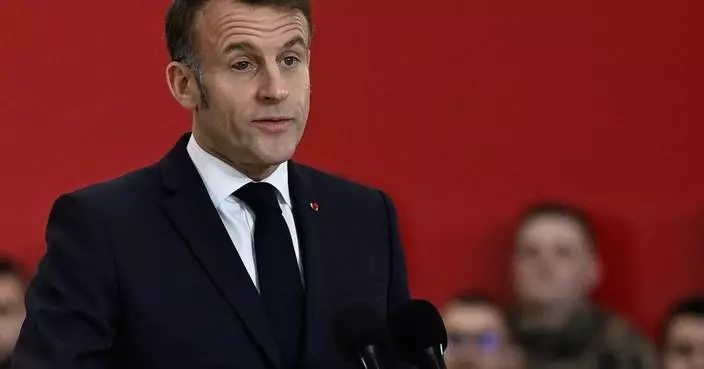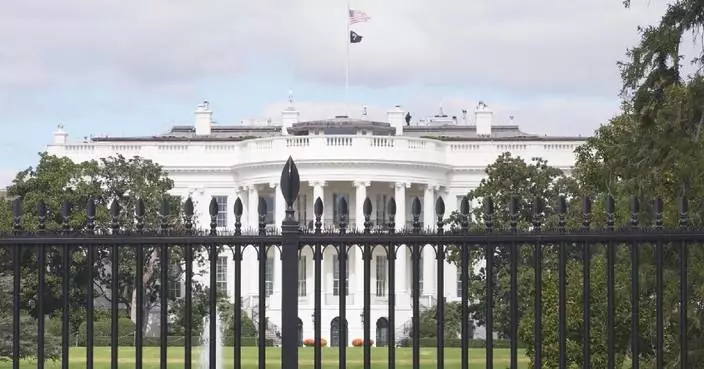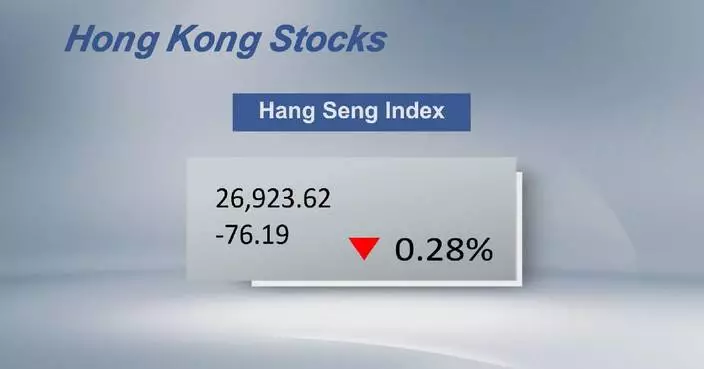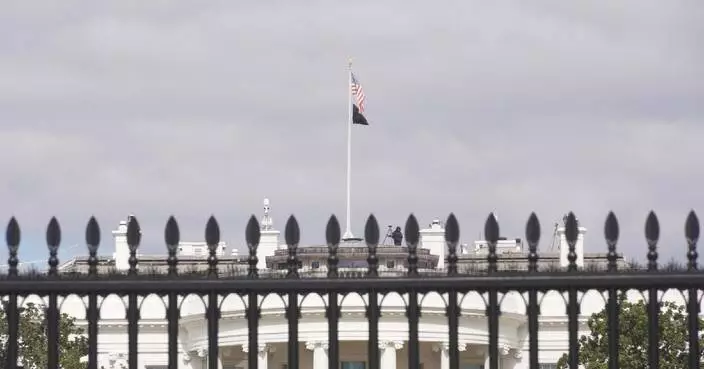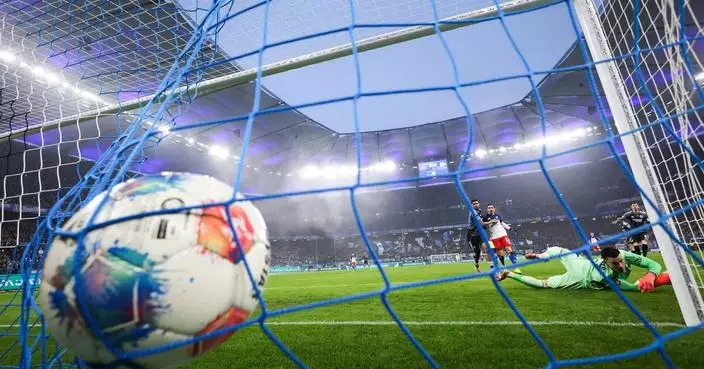Feature · News

Chinese, Iranian FMs have phone conversation
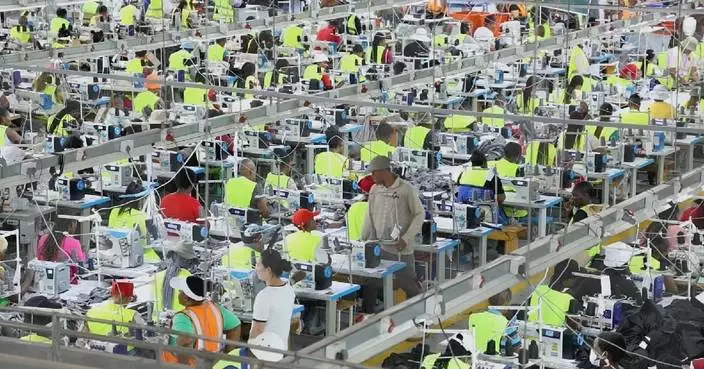
U.S. tariffs plunge Lesotho's textile industry into crisis

Venezuelan workers rally for Maduro's return

Photos show Ukrainians enduring a frigid winter after Russian strikes knocked out power

Proposals on immigration enforcement flood into state legislatures, heightened by Minnesota action

Iranian security forces disperse anti-government demonstrators

Canadian PM's visit to China paves way for more pragmatic trade ties: scholar

Delays plague voting in Uganda's presidential election

Russia, Ukraine update battle reports

China ready to work for steady, sound ties with Canada: FM
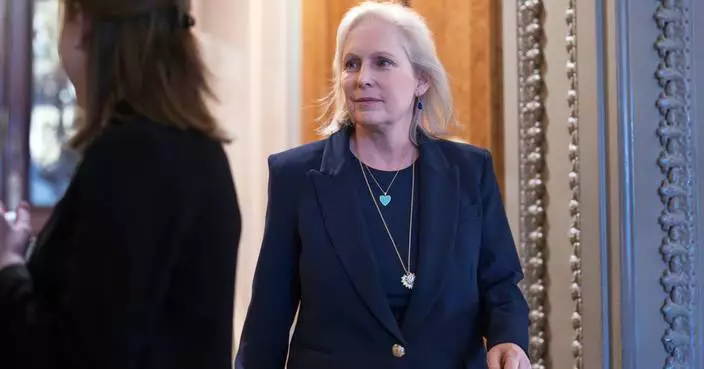
Senators launch a cross-party effort to end stock trading by lawmakers

Photos of tensions between federal officers and locals in Minneapolis
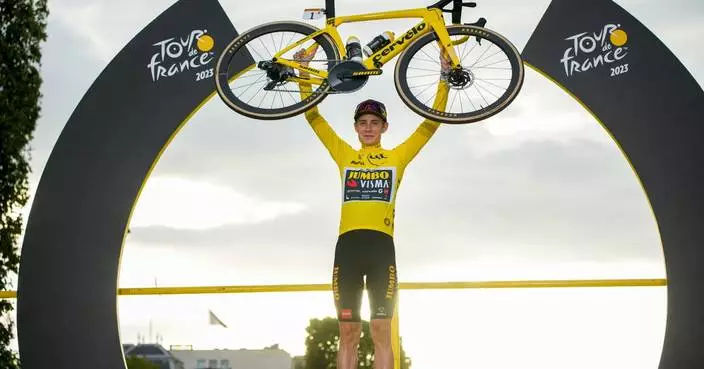
Men's and women's Tour de France to have opening stages in Britain in 2027

Trump's ceasefire plan faces great uncertainty as it moves into a new phase

Explosion in the Netherlands injures at least 4 and causes widespread damage

Clayton Kershaw not quite done pitching, will play for US in World Baseball Classic
Canadian PM's visit to China paves way for more pragmatic trade ties: scholar

Delays plague voting in Uganda's presidential election
Russia, Ukraine update battle reports
China ready to work for steady, sound ties with Canada: FM
Chinese, Iranian FMs have phone conversation
U.S. tariffs plunge Lesotho's textile industry into crisis
Venezuelan workers rally for Maduro's return

Photos show Ukrainians enduring a frigid winter after Russian strikes knocked out power

Proposals on immigration enforcement flood into state legislatures, heightened by Minnesota action
Iranian security forces disperse anti-government demonstrators

Senators launch a cross-party effort to end stock trading by lawmakers

Photos of tensions between federal officers and locals in Minneapolis

Men's and women's Tour de France to have opening stages in Britain in 2027

Trump's ceasefire plan faces great uncertainty as it moves into a new phase

Explosion in the Netherlands injures at least 4 and causes widespread damage

Clayton Kershaw not quite done pitching, will play for US in World Baseball Classic
Feature·Bloggers

【Deep Throat】Trump's Latest Iran Tariff Bluff: China Sees Right Through It

【Ariel】Jimmy Lai’s “Solitary” Twist: Judges Say He Asked For It

【What Say You?】Accomplice Witness Chen Zihao: Family Stalked, Fears Black Bloc Revenge After Release

【Deep Blue】International Laws? You Kidding Me?

【Bastille Commentary】Chicken-hearted Conservatives: Sanctioning Hong Kong Judges While Trump Runs Wild

【What Say You?】Trump’s “Maduro Grab” Gets a Glossy Spin by the Usual Suspects

Trump threatens to use the Insurrection Act to end protests in Minneapolis
- The Latest: UN Security Council discusses Iran's deadly protests after US request
- Trump's Insurrection Act threat stands out against the law's long history
- Federal immigration agents filmed dragging a woman from her car in Minneapolis
- Venezuela’s new leader calls for opening oil industry to foreign investment and warmer US ties
- Defense Department says military newspaper Stars and Stripes must eliminate 'woke distractions'
- International media flock to Greenland as Trump turns the Arctic island into a geopolitical hot spot
- Venezuela's Machado says she presented her Nobel Peace Prize to Trump during their meeting
- Senators worry that US Postal Service changes could disenfranchise voters who cast ballots by mail
- Trump announces outlines of health care plan he wants Congress to consider

China's commercial rocket launches new satellites from sea
- Former Taiwan TV host bridges cross-Strait divide via online media
- China's aggregate social financing maintains high growth in 2025
- China's commerce minister outlines plans to boost consumption, trade in 2026
- China ready to work for steady, sound ties with Canada: FM
- Japanese PM's erroneous remarks on China's Taiwan undermine regional stability
- China's top legislator meets Canadian PM
- China willing to strengthen cooperation with Canada: premier
- "Soft landing" of China-EU EV case to significantly boost market confidence: MOC spokeswoman
- China's foreign trade promises further growth in 2026

TVBS and Disney+ Achieve Record-Breaking Success with 40th Golden Disc Awards in Taiwan
- ZWIE and The Education University of Hong Kong Sign Memorandum of Cooperation to Promote Exchange and Deepen Collaboration
- Point Hope Announces Launch of the Anchor Generational Assets Fund
- NIA Highlights Key Innovation Trends for 2026, Spotlighting Innovation Policies Driving Thailand’s Economy and Society
- Panduit Strengthens Commitment to Customer Excellence with Appointment of Holly Garcia to Chief Commercial Officer
- MindHYVE.ai™ and The Open University of Kenya Announce Strategic Collaboration on AI-Powered Learning and Academic Innovation
- MOVA Launches Cleaning Solutions in Silicon Valley: Finding Answers for Premium Cleaning Through Pragmatic Innovation
- MOVA Unveils 'the M∞VA Universe' at Silicon Valley Launch, Positioning as a Global Premium AI Smart Living Leader
- Kathleen Kennedy, steward of 'Star Wars,' steps down from Lucasfilm
- NYC nurses on strike resume negotiations with hospitals on 4th day

CDC studies show value of nationwide wastewater disease surveillance, as potential funding cut looms
- What you need to know about Grok and the controversies surrounding it
- Confusion erupts in mental health and substance abuse programs as HHS cuts, then reinstates grants
- At Detroit auto show, spotlight dims for EVs
- Kaiser affiliates will pay $556M to settle a lawsuit alleging Medicare fraud
- Lawmakers propose $2.5B agency to boost production of rare earths and other critical minerals
- What to know about UK legal changes aiming to regulate AI-generated nude images
- Final day to select ACA health plans arrives in most states, with no subsidy deal yet
- In a warming world, freshwater production is moving deep beneath the sea
- Ailing astronaut returns to Earth early in NASA's first medical evacuation
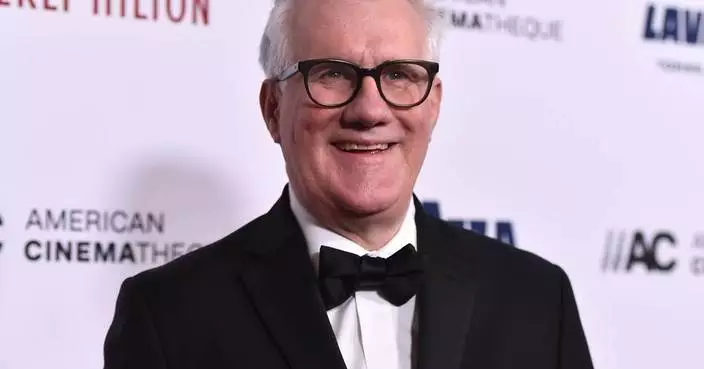
Former Universal chair David Linde named CEO of Sundance Institute
- The new BTS album title and what to know about the K-pop band’s comeback
- Min Jin Lee's 'Pachinko' follow-up, 'American Hagwon,' will explore Korean education obsession
- Actor Timothy Busfield ordered held without bond in New Mexico child sex abuse case
- Royal Opera sees generation change as Jakub Hrůša and Speranza Scappucci come in
- Julio Iglesias accused of sexual assault in Caribbean as Spanish prosecutors study the allegations
- Fanatics debuts Fanatics Studios with Olympics, Tom Brady and ESPN at Intuit Dome
- Warm up with creamy rutabaga, parsnip and cheddar soup
- Kim Gordon returns with defiant new solo album, 'Play Me': 'It does feel like an evolution'
- Serbians mark Orthodox Christian New Year according to old tradition
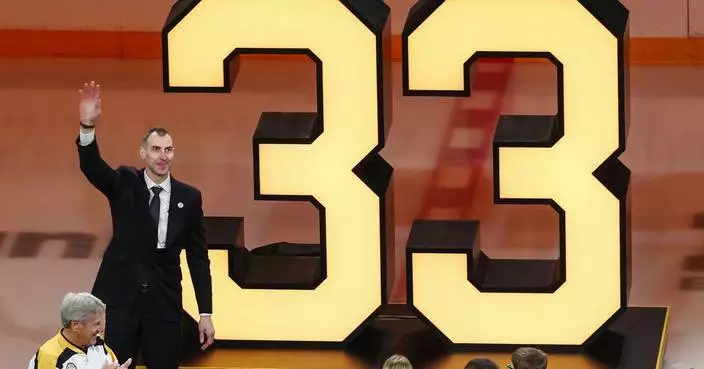
Boston Bruins retire Zdeno Chara's No. 33, honoring the giant defenseman who led 2011 Cup victory
- Blakes scores 38 points, No. 5 Vanderbilt beats Mississippi State for first 18-0 start
- Adin Hill returns to Golden Knights after nearly 3 months, Carter Hart goes on IR
- Athletes Unlimited announces star-studded roster for 5th season of women's basketball
- Wembanyama returns after early injury in Spurs vs. Bucks game
- American Ben Shelton heads to the Australian Open after losing in the Auckland quarterfinals
- Christian McCaffrey, Aaron Jones and Jake Ferguson are finalists for NFL's Salute to Service Award
- Ravens interview former Dolphins coach Mike McDaniel for their coaching vacancy
- Seahawks don't expect many surprises when they host 49ers in playoffs, 2 weeks after last meeting
- Pitcher Ryan Weathers just got out of sauna when he learned of trade to the Yankees

John Lee Welcomes Global AI Leaders to Inaugural WAIC UP! Summit in Hong Kong
- Government Reappoints Professor Thomas Ho as Chair of Construction Industry Council, Announces New Members
- Hong Kong Customs Seizes 19,000 Counterfeit Goods Worth $14 Million in Major Operation
- Hong Kong Sees Record Company Registrations in 2025, Totaling Over 1.5 Million
- Six illegal workers and an employer arrested in Hong Kong's anti-illegal worker operation Contribute
- Tai Po Fire Identifies 168 Victims, Police Confirm No Unidentified Remains
- Health Officials from Mainland, Hong Kong, and Macao Meet to Discuss Medical Innovations and Public Health Strategies
- HKMA Warns Public About Recent Banking Scams and Fraudulent Websites
- HYAB Launches Youth Start-up Internship Programme 2026 for Young Innovators in Hong Kong
- Hong Kong Customs Seizes $4.2 Million in Drugs, Arrests 28-Year-Old Man in Yau Tong Operation
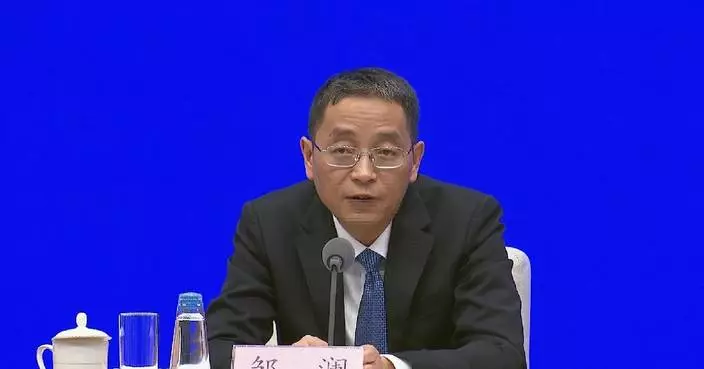
China has no need or intent to use currency depreciation for trade advantage: central bank
- National online shopping event to be launched for Spring Festival
- China cuts interest rates on structural monetary policy tools by 0.25 percentage points
- US intentions in Greenland violates Int'l law, targets oil: Spanish expert
- China, Canada have huge cooperation potential in economic, trade fields: commerce ministry
- Japanese people rally against PM's erroneous remarks, military expansion
- China's new round of trade-in subsidy program drives consumer goods sales
- Former Iranian VP warns foreign interference undermines demands of real protesters
- Nigeria's drive to build digital economy faces major setback due to fibre crisis
- Chinese, French surgeons exchange expertise on robot-assisted pancreatic surgery
Category · News

John Lee Welcomes Global AI Leaders to Inaugural WAIC UP! Summit in Hong Kong

Government Reappoints Professor Thomas Ho as Chair of Construction Industry Council, Announces New Members

Trump threatens to use the Insurrection Act to end protests in Minneapolis

Hong Kong Customs Seizes 19,000 Counterfeit Goods Worth $14 Million in Major Operation

Boston Bruins retire Zdeno Chara's No. 33, honoring the giant defenseman who led 2011 Cup victory

Blakes scores 38 points, No. 5 Vanderbilt beats Mississippi State for first 18-0 start

Adin Hill returns to Golden Knights after nearly 3 months, Carter Hart goes on IR

TVBS and Disney+ Achieve Record-Breaking Success with 40th Golden Disc Awards in Taiwan

ZWIE and The Education University of Hong Kong Sign Memorandum of Cooperation to Promote Exchange and Deepen Collaboration
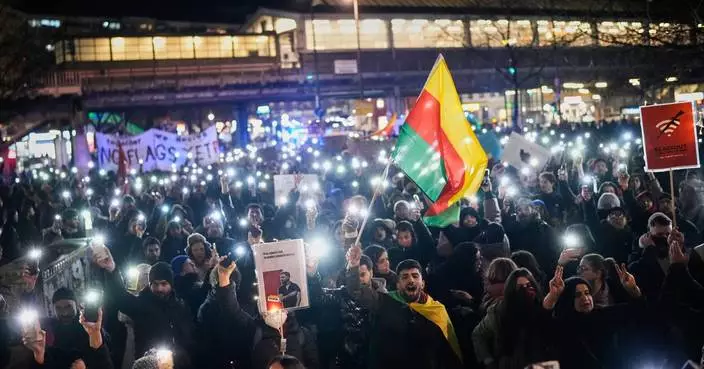
The Latest: UN Security Council discusses Iran's deadly protests after US request

Point Hope Announces Launch of the Anchor Generational Assets Fund

Trump's Insurrection Act threat stands out against the law's long history
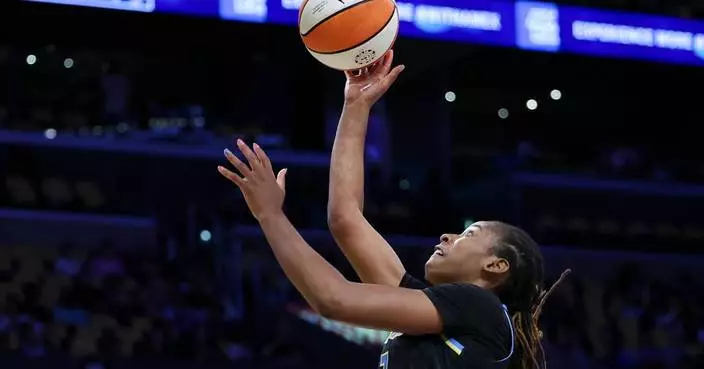
Athletes Unlimited announces star-studded roster for 5th season of women's basketball

NIA Highlights Key Innovation Trends for 2026, Spotlighting Innovation Policies Driving Thailand’s Economy and Society
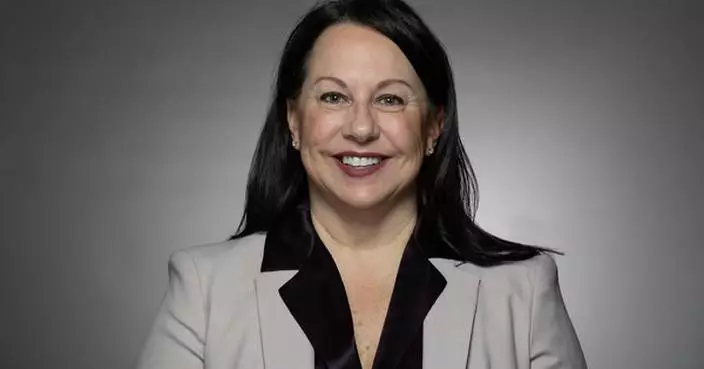
Panduit Strengthens Commitment to Customer Excellence with Appointment of Holly Garcia to Chief Commercial Officer

Federal immigration agents filmed dragging a woman from her car in Minneapolis
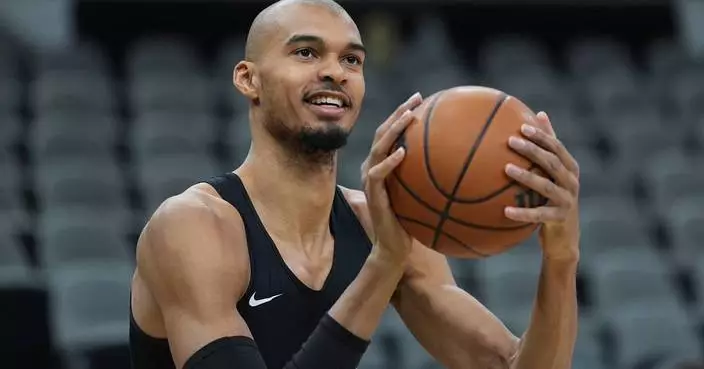
Wembanyama returns after early injury in Spurs vs. Bucks game

Venezuela’s new leader calls for opening oil industry to foreign investment and warmer US ties

Defense Department says military newspaper Stars and Stripes must eliminate 'woke distractions'
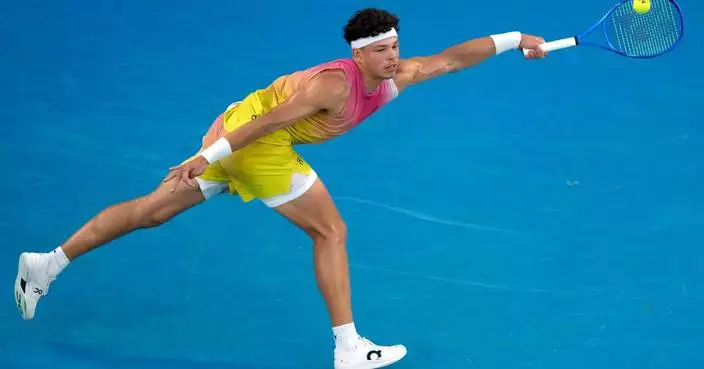
American Ben Shelton heads to the Australian Open after losing in the Auckland quarterfinals

Christian McCaffrey, Aaron Jones and Jake Ferguson are finalists for NFL's Salute to Service Award

Hong Kong Sees Record Company Registrations in 2025, Totaling Over 1.5 Million

Ravens interview former Dolphins coach Mike McDaniel for their coaching vacancy

Seahawks don't expect many surprises when they host 49ers in playoffs, 2 weeks after last meeting

MindHYVE.ai™ and The Open University of Kenya Announce Strategic Collaboration on AI-Powered Learning and Academic Innovation

International media flock to Greenland as Trump turns the Arctic island into a geopolitical hot spot
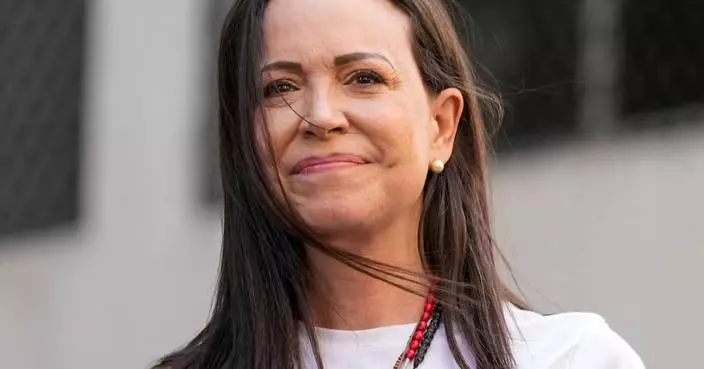
Venezuela's Machado says she presented her Nobel Peace Prize to Trump during their meeting

MOVA Launches Cleaning Solutions in Silicon Valley: Finding Answers for Premium Cleaning Through Pragmatic Innovation

MOVA Unveils 'the M∞VA Universe' at Silicon Valley Launch, Positioning as a Global Premium AI Smart Living Leader

Senators worry that US Postal Service changes could disenfranchise voters who cast ballots by mail

Trump announces outlines of health care plan he wants Congress to consider

Alaska court weighs voter misconduct charges in case that casts light on status of American Samoans
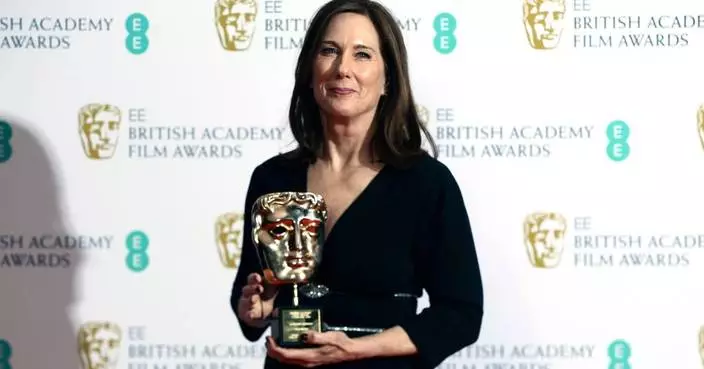
Kathleen Kennedy, steward of 'Star Wars,' steps down from Lucasfilm
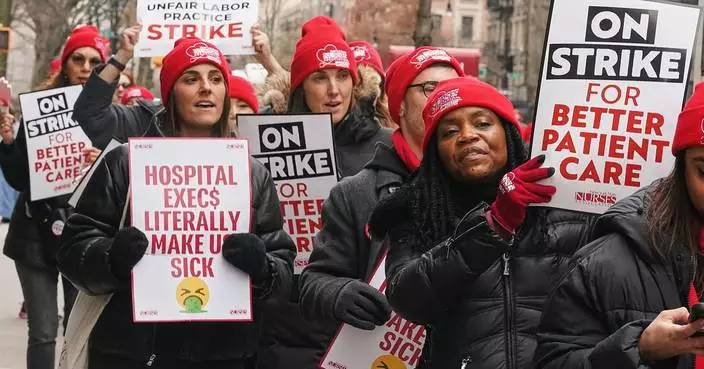
NYC nurses on strike resume negotiations with hospitals on 4th day
China's commercial rocket launches new satellites from sea

Pitcher Ryan Weathers just got out of sauna when he learned of trade to the Yankees

New Oceania soccer competition has a 2029 Club World Cup spot as the winner's reward
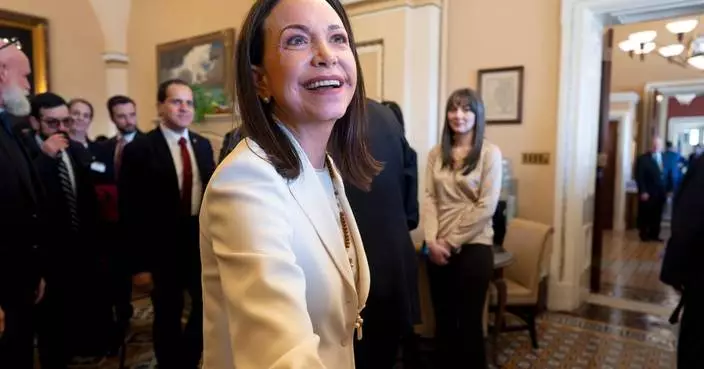
Photos show Venezuela caught between Machado’s diplomacy and Rodríguez’s rule

Mavericks rookie star Cooper Flagg out against Jazz because of ankle injury

Pats eye 1st trip to AFC title game in 7 years against Texans team looking for 1st appearance

Bills face Broncos in Denver's first home playoff game since 2015 season

Matthew Stafford and Rams visit Caleb Williams and Bears in matchup of high-powered offenses

Seahawks, 49ers preparing to meet for 2nd time in 3 weeks in NFC divisional round matchup

As Additive-Free Spirits Surge, Rum Becomes the Next Category Under the Microscope

Rams collide with resurgent Bears in divisional round matchup featuring high-powered offenses
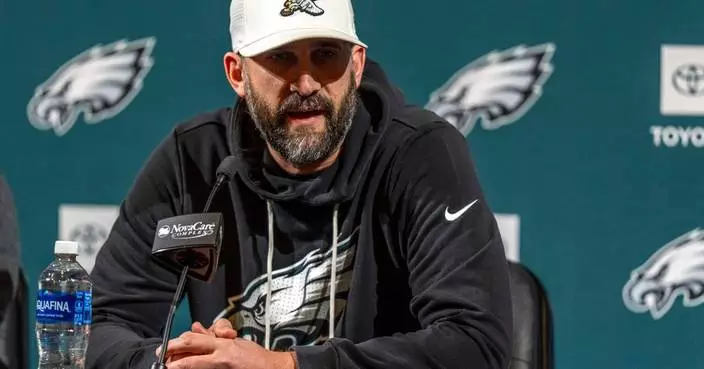
Eagles' Sirianni and Roseman offer few details on ouster of Patullo and what they want in new OC

Versatile Willi Castro and Rockies agree to $12.8 million, 2-year deal, AP source says
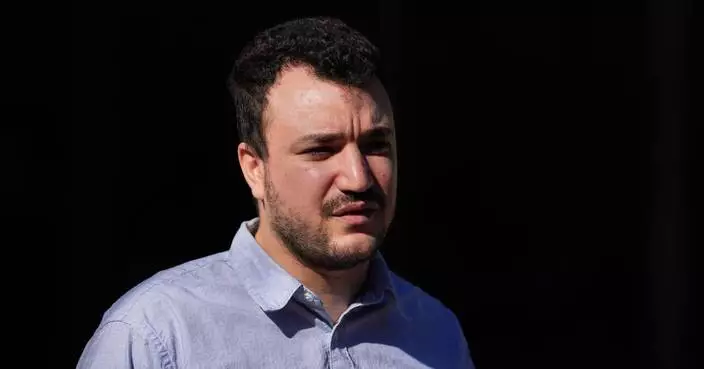
Court ruling jeopardizes freedom for pro-Palestinian activist Mahmoud Khalil

Dialpad Launches Real-Time AI in Japan

Suns star Devin Booker out against Pistons after injuring ankle in previous game against Heat
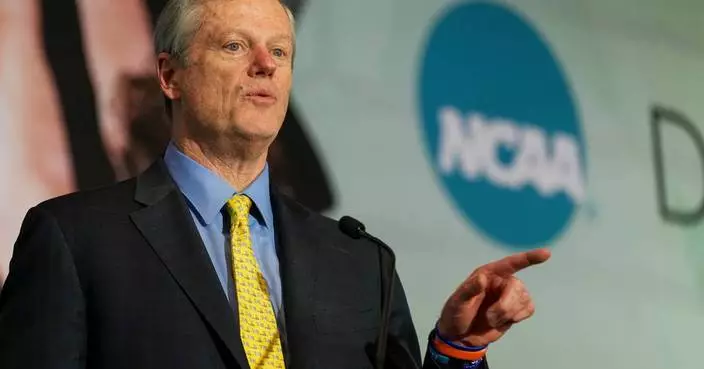
Key facts in the latest NCAA basketball betting investigation

Aggressive tactics used on Minneapolis protesters raise concerns about federal officer training
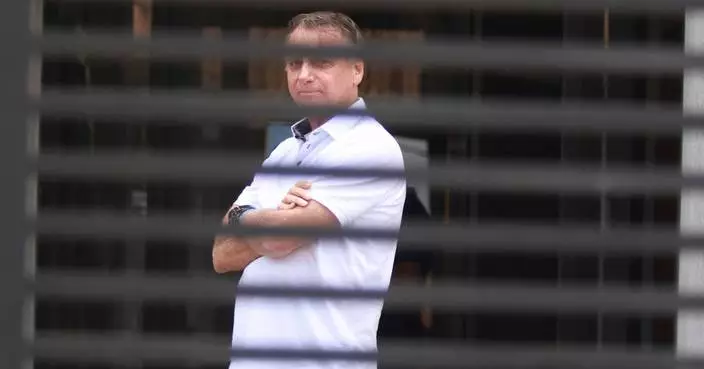
Brazil's Supreme Court moves Bolsonaro to larger cell with outdoor area
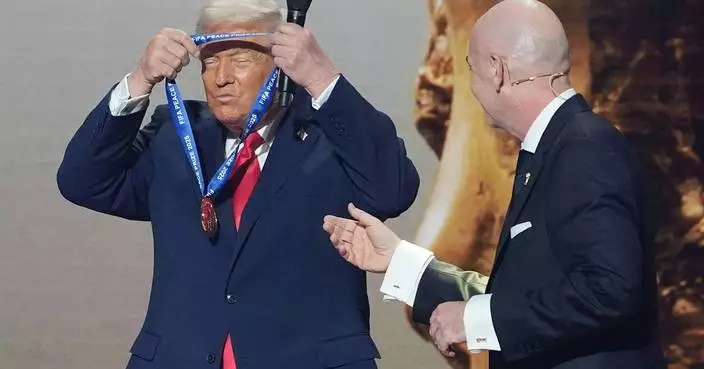
US names major sporting events other than World Cup, Olympics exempt from Trump visa ban

Oglala Sioux president walks back claims of DHS pressure, member arrests

Remains of 32 Cuban officers killed during strike on Venezuela repatriated as US threat lingers

Alex Bregman looking to win a World Series with the Chicago Cubs

Postal Service unveils new Muhammad Ali stamp in champ's hometown

CDC studies show value of nationwide wastewater disease surveillance, as potential funding cut looms

Democrats hope a blue wave washes over Wisconsin and gives them total control of battleground state
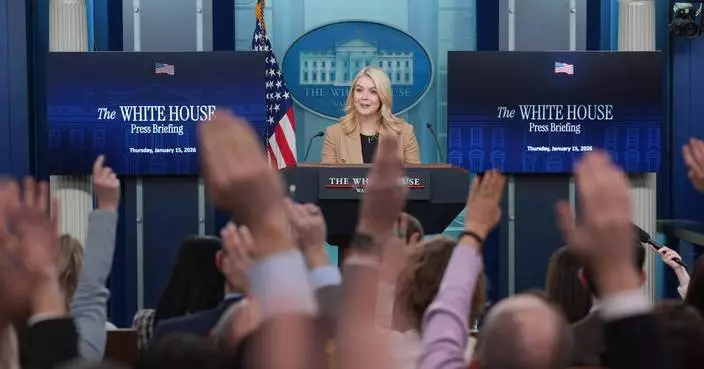
Middle East allies in blitz of diplomacy urged Trump to hold off on Iran strikes, diplomat says

European troops arrive in Greenland as talks with US highlight 'disagreement' over island's future
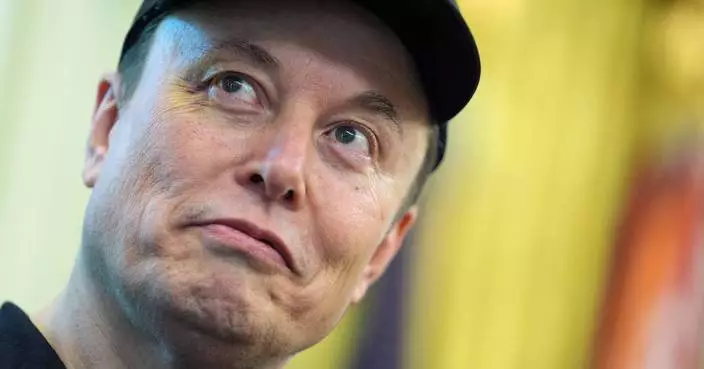
What you need to know about Grok and the controversies surrounding it

Georgian figure skaters win pairs and lead men's event at European championships

Paolo Banchero and Franz Wagner lead Magic past Grizzlies 118-111 in Berlin
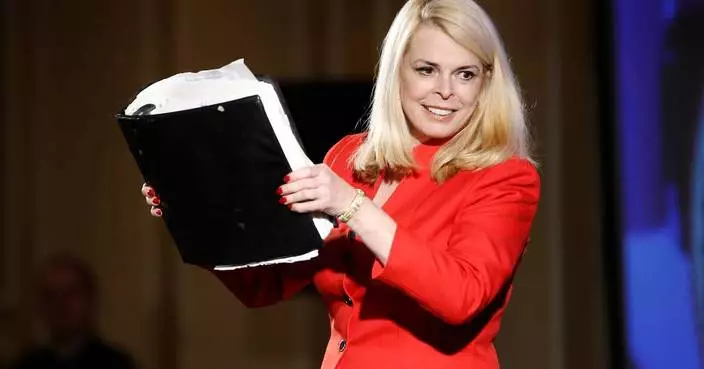
Former New York Lt. Gov. Betsy McCaughey now running for Connecticut governor

Adrien Rabiot helps AC Milan close Serie A gap with 3-1 comeback win over Como

Top ICE official resigns to seek battleground congressional seat in Ohio
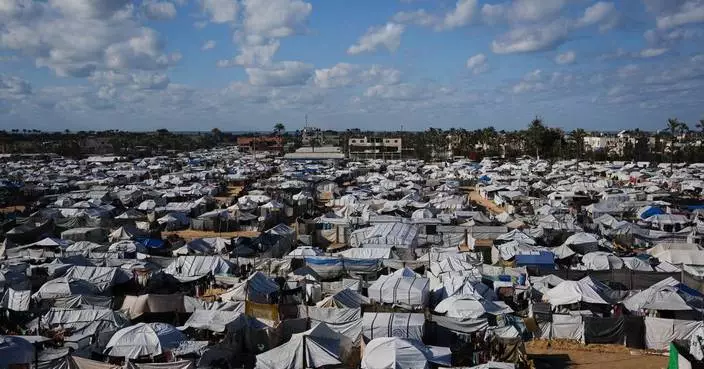
Netanyahu says the announced start of Gaza ceasefire's next phase is a 'declarative move'

INSERTING and REPLACING Progresso™ Soup Drops — the Soup You Can Suck On — Return in New Variety Can Featuring Chicken Noodle, Tomato Basil and Beef Pot Roast Flavors

NCAA basketball players and gamblers are charged for allegedly rigging games
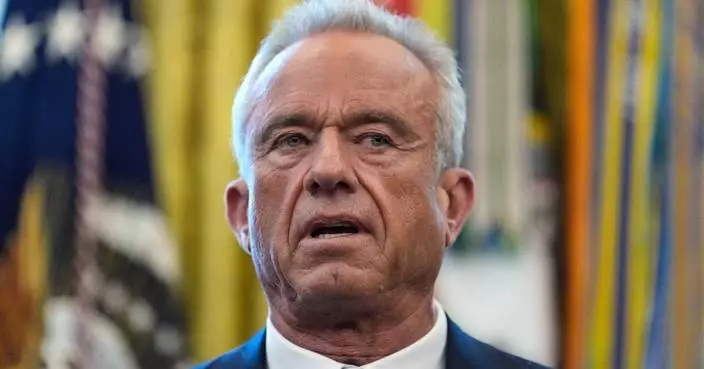
Confusion erupts in mental health and substance abuse programs as HHS cuts, then reinstates grants

Ohio authorities say Michael McKee, the ex-husband of Monique Tepe, is responsible for killings

Tanzania president remorseful over internet shutdown on election day

United States Premier Hockey League unveils performance-based NIL system

Prosecutor urges manslaughter verdict for guard who 'did nothing' as fellow officers killed inmate

US seizes sixth sanctioned tanker it says has ties to Venezuela in Trump's effort to control its oil

At Detroit auto show, spotlight dims for EVs
Former Taiwan TV host bridges cross-Strait divide via online media

Fan protest against kickoff times interrupts Bundesliga game between Augsburg and Union Berlin

Fernando Mendoza hopes to cap an incredible journey with Indiana's 1st national title

Desert X AlUla 2026: monumental land art exhibition opens in the ancient oasis of AlUla

Judge hands offshore wind industry another victory against Trump in clearing way for NY project

The top photos of the day by AP's photojournalists




